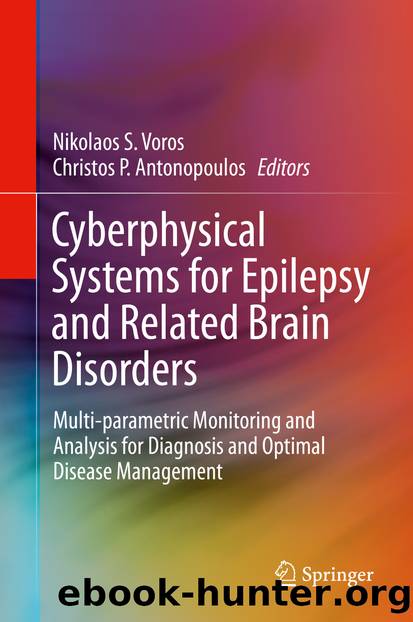Cyberphysical Systems for Epilepsy and Related Brain Disorders by Nikolaos S. Voros & Christos P. Antonopoulos

Author:Nikolaos S. Voros & Christos P. Antonopoulos
Language: eng
Format: epub
Publisher: Springer International Publishing, Cham
Hacker/Cracker Incidents
Responding to hacker/cracker incidents is somewhat different than responding to a worm or virus incident. Some hackers are very sophisticated and will go to great depths to avoid detection. Others are naive young students looking for a thrill. Hacker incidents can be divided into three types: attempts to gain access to a system, an active session on a system, or events which have been discovered after the fact. Of the three, an active hacker/cracker session is the most severe and must be dealt with as soon as possible. There are two methods for dealing with an active hacker/cracker incident. The first method is to immediately lock the person out of the system and restore the system to a safe state. The second method is to allow the hacker/cracker to continue his probe/attack and attempt to gather information that will lead to an identification and possible criminal conviction. The method used to handle a cracker/hacker incident will be determined by the level of understanding of the risks involved.
Download
This site does not store any files on its server. We only index and link to content provided by other sites. Please contact the content providers to delete copyright contents if any and email us, we'll remove relevant links or contents immediately.
Algorithms of the Intelligent Web by Haralambos Marmanis;Dmitry Babenko(7852)
Hadoop in Practice by Alex Holmes(5660)
Jquery UI in Action : Master the concepts Of Jquery UI: A Step By Step Approach by ANMOL GOYAL(5514)
Life 3.0: Being Human in the Age of Artificial Intelligence by Tegmark Max(4508)
Functional Programming in JavaScript by Mantyla Dan(3723)
The Age of Surveillance Capitalism by Shoshana Zuboff(3423)
Big Data Analysis with Python by Ivan Marin(3013)
Blockchain Basics by Daniel Drescher(2891)
The Rosie Effect by Graeme Simsion(2708)
WordPress Plugin Development Cookbook by Yannick Lefebvre(2602)
Hands-On Machine Learning for Algorithmic Trading by Stefan Jansen(2519)
Applied Predictive Modeling by Max Kuhn & Kjell Johnson(2479)
Dawn of the New Everything by Jaron Lanier(2438)
Test-Driven Development with Java by Alan Mellor(2388)
The Art Of Deception by Kevin Mitnick(2298)
Data Augmentation with Python by Duc Haba(2232)
Rapid Viz: A New Method for the Rapid Visualization of Ideas by Kurt Hanks & Larry Belliston(2195)
The Infinite Retina by Robert Scoble Irena Cronin(2180)
Human Dynamics Research in Smart and Connected Communities by Shih-Lung Shaw & Daniel Sui(2178)
